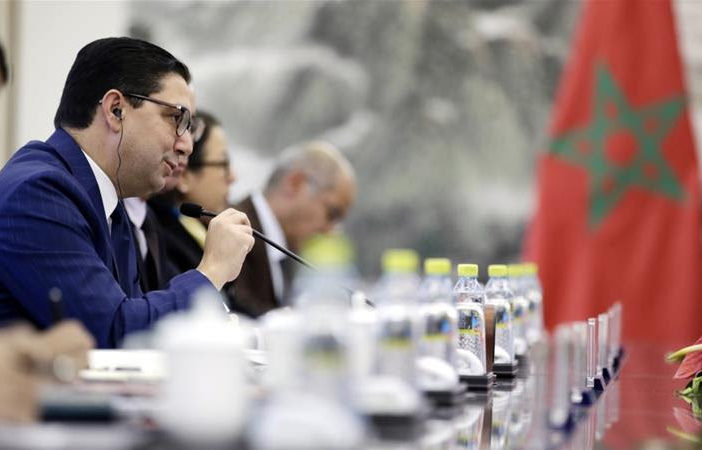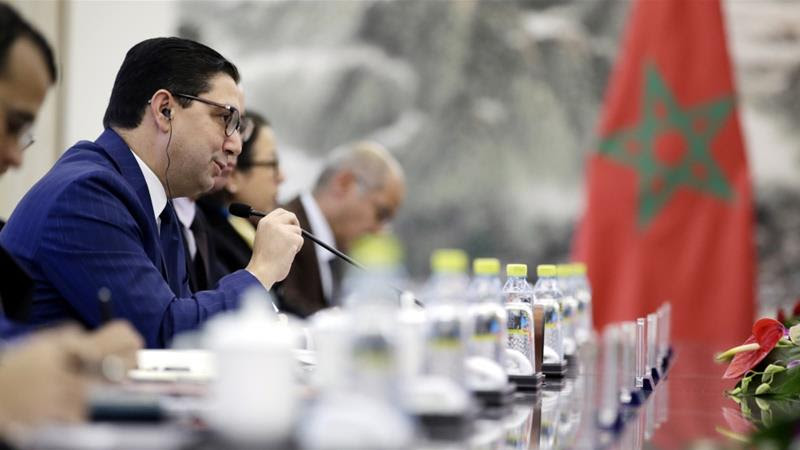Al Jazeera News
Foreign Minister Nasser Bourita says Algeria provided ‘operational support’ to Iran but expressed desire for dialogue.
Morocco’s foreign minister told reporters that Algeria offered more than a meeting venue for members of the Polisario and Hezbollah [Jason Lee/EPA-EFE]
Morocco’s foreign minister has accused Algeriaof being directly involved in Iran’s support of the Polisario, an independence movement in the disputed Western Sahara territory.
Foreign Minister Nasser Bourita told French publication Jeune Afrique in an extensive interview that Algeria offered more than a meeting venue for members of the Polisario Front and Lebanese group Hezbollah, which Rabat accused Iran of using in its support of the independence movement.
“Algeria has given more than its blessing. It has given an opening, backing and operational support,” Bourita said.
“In addition, some meetings between the Polisario and Hezbollah were held in a secret Algiers hideout, leased to a certain ‘DB’, an Algerian woman married to a Hezbollah cadre, who acts as a liaison officer for Hezbollah, notably with the Polisario,” Bourita added.
Earlier in May, Morocco severed ties with Iran over its alleged support of the Polisario through Hezbollah and in coordination with Tehran’s diplomatic mission to Algiers.
Algiers summoned the kingdom’s ambassador at the time to protest Moroccan allegations that it played any role in Tehran’s purported support for the rebel movement.
Bourita added in the interview, revealed a day ahead of its scheduled publication by Morocco’s foreign ministry, that he believed Algeria resorted to diversionary tactics, such as its support for the Polisario, to shift attention away from the country’s more pressing concerns.
“Let’s not forget that the Algerian regime, confronted by a grave institutional, political, economic and social crisis could not survive but for the problems and tensions that it has itself generated or intends to create, in order to deflect Algerians’ attention from their real concerns,” the foreign minister said.
‘Our most ardent wish’
Bourita, however, switched tone and insisted that a different path does exist for the two countries, pointing out that France and Germany were able to reconcile after two world wars.
“Dialogue is always possible. It is our most ardent wish … The example of Germany and France is here to remind us. Who could have imagined, at the end of World War II that these two countries would be the engine of Europe’s construction.”
Last year, Bourita lamented the state of affairs between the two countries, noting that it had been more than seven years since a bilateral visit took place.
A failed attempt in 1963 to retake parts of Tindouf and Bechar provinces (present-day Algeria), territories that Rabat had long considered to be part of Greater Morocco, cast a lasting shadow over the neighbour’s ties.
Analysts believe that Algeria’s subsequent support for secessionist rebels from Western Sahara – a former Spanish colony until 1975 – is the result of the bad start the two countries got off to since achieving independence from colonial France, Morocco in 1956, Algeria in 1962.








